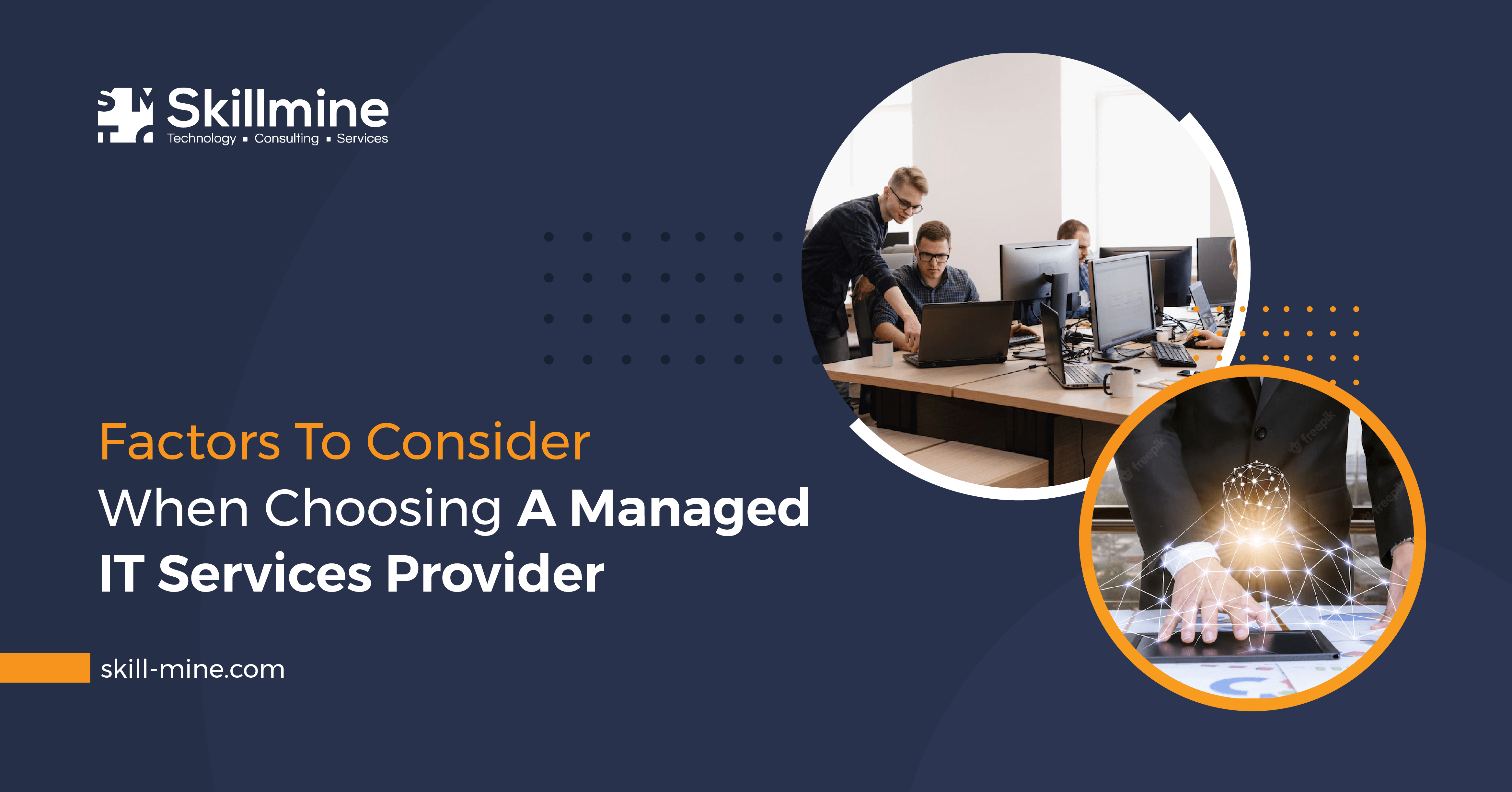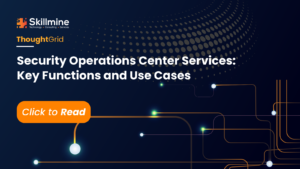A leading e-commerce company approached Skillmine after breaking ties with their previous IT Managed Services Provider. Though the client was satisfied with the level of service, they received from their MSP, as time wore on, the quality of customer service began to dwindle, with the MSP cutting corners to save on costs. Instead of involving engineers, the issues were being resolved by an outsourced team in Canada, which increased the response time.
Skillmine managed the network connectivity across their offices by providing cloud storage. Skillmine also gave the client high-quality technical support and monitoring for less cost.
With several MSPs with varied levels of experience and competence available in the market, choosing a good fit for your business might be challenging. You must consider several factors when choosing an MSP since it will act as a long-term partner for your company. Here are a few of them
Skills
The MSP you select should have more expertise than your internal IT team. Access to specialists and experts is one of the main advantages of working with an MSP, so determine your skill gaps and ensure your MSP can assist your existing IT employees by providing the required skillsets.
Experience
An MSP in your sector can provide guidance on the rules you must follow and can also provide the required software and knowledge you might need. It is crucial that you engage with an MSP that has thrived in a variety of various settings since they will serve as your guide. Inquire about recommendations from potential MSPs without holding back, regardless of your sector.
Compliance support
Businesses must employ specialised cyber security measures to comply with increasing regulatory frameworks (e.g., GDPR, NIST, etc.). Not following these guidelines may lead to your company incurring expensive fines and penalties. Working with an MSP who will ensure that your IT systems abide by the laws of your region and sector would be a smart option.
Partnerships with third-party vendors
Most MSPs retain relationships with third-party vendors, which may be advantageous to your company in many ways, including lower prices on purchases, certified configuration and support services, etc. Find out if your MSP has relationships with your vendors so you can later achieve cost savings and other efficiencies.
Support for business continuity and disaster recovery
Ensure that your MSP stores your data in safe data centres. Your sector might require your MSP to follow extra regulatory requirements in addition to following generally accepted security best practices. The failover mechanism of your MSP should roll over data to another data centre in a different location if one data centre fails (for example, as a result of a natural disaster). Regarding company continuity, your MSP should assist in resuming regular business activities as soon as calamity strikes.
Contract flexibility: Your MSP shouldn’t bind you to lengthy agreements or pressure you into enrolling in extra services you don’t require. Your MSP ought to be adaptable enough to meet your unique requirements. For instance, if you need patching services but do not want to sign a contract for three years, your MSP can offer the service as a project. The advantage of this strategy is that you don’t have to subscribe to every MSP provider to advance your IT. You can purchase various services on an a la carte basis if you need particular upgrades or support.
Conclusion
Managed service providers have become an integral part of business operations. Your MSP needs to be a collaborator who boosts revenue and savings within your business. To do that, you must ensure that your MSP fulfils all of the IT needs of your company. At Skillmine, we provide end-to-end IT services to alleviate bottlenecks in your business, allowing you to focus more resources on enhancing your profit.
Looking for expert technology consulting services? Contact us today.





